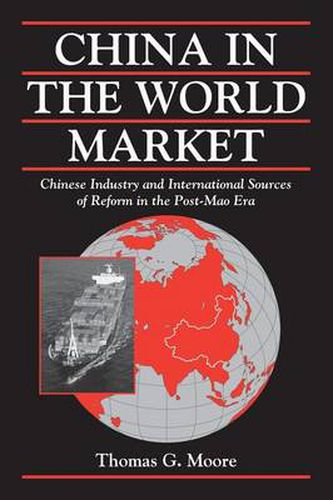Readings Newsletter
Become a Readings Member to make your shopping experience even easier.
Sign in or sign up for free!
You’re not far away from qualifying for FREE standard shipping within Australia
You’ve qualified for FREE standard shipping within Australia
The cart is loading…






In a book that reframes our thinking about the nature of China’s reform and opening, Thomas Moore argues that the structuring impact of the international political economy represents one of the most theoretically important yet inadequately studied issues concerning change in post-Mao China. After carefully defining his conceptual framework, Moore presents detailed case studies of textiles and shipbuilding to examine the impact of varying degrees of economic openness in the world trading system on the reform, restructuring, and rationalization of Chinese industries. As the book amply demonstrates, the international environment most propitious for change in China’s textile and shipbuilding industries during the 1980s and 1990s was one marked by moderate economic closure rather then the ideal-typic economic openness assumed by most observers. Moore also challenges popular notions of China’s recent economic success by arguing that Beijing’s ability to pursue strategic industrial policy is actually quite limited.
$9.00 standard shipping within Australia
FREE standard shipping within Australia for orders over $100.00
Express & International shipping calculated at checkout
In a book that reframes our thinking about the nature of China’s reform and opening, Thomas Moore argues that the structuring impact of the international political economy represents one of the most theoretically important yet inadequately studied issues concerning change in post-Mao China. After carefully defining his conceptual framework, Moore presents detailed case studies of textiles and shipbuilding to examine the impact of varying degrees of economic openness in the world trading system on the reform, restructuring, and rationalization of Chinese industries. As the book amply demonstrates, the international environment most propitious for change in China’s textile and shipbuilding industries during the 1980s and 1990s was one marked by moderate economic closure rather then the ideal-typic economic openness assumed by most observers. Moore also challenges popular notions of China’s recent economic success by arguing that Beijing’s ability to pursue strategic industrial policy is actually quite limited.